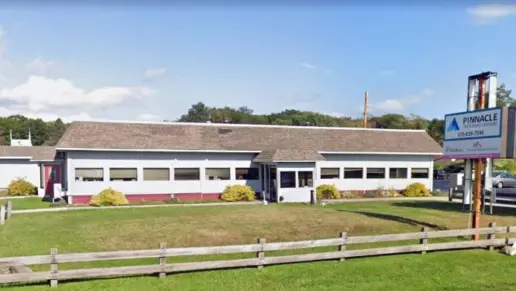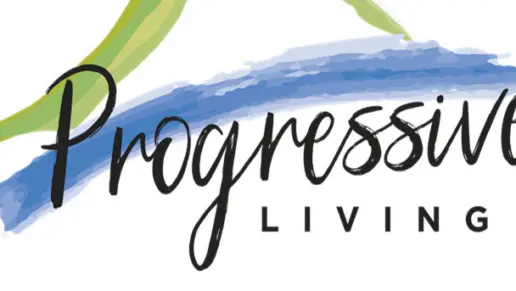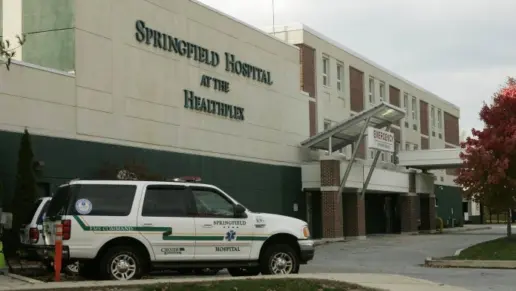About Allentown Comprehensive Treatment Center
Home of the first ever drive in movie theater in the United States, Orefield, Pennsylvania also offers a space for recovery at Allentown Comprehensive Treatment Center. You can take part in specialized treatment for prescription painkillers, heroin and other opioid addiction at this outpatient clinic. If you’re an adult aged 18 or older, you can receive medically supervised medication assisted treatment (MAT) and counseling.
With outpatient treatment you can live at home and tend to daily responsibilities while getting the help you seek. Their approach helps you overcome the physical and psychological effects of addiction. You’ll participate in their MAT program to tackle withdrawal symptoms and cravings that come with quitting opioids. You’ll be prescribed FDA approved medications like methadone or Suboxone to block these effects and help you progress in recovery.
You’ll also participate in counseling to get to the root of your addiction. You can take part in group and individual counseling incorporating cognitive behavioral and dialectical behavior therapy. These proven therapeutic interventions can help you understand the underlying factors of addiction and develop coping skills to sustain sobriety.
What stands out most to me is their personalized approach. They understand that recovery looks different for everyone. You’ll benefit from tailored treatment from their expert nurses, doctors and licensed counselors. They strive to deliver exceptional care no matter your situation.
Former clients have mixed experiences. Some praised their comprehensive services and attributed their success in recovery to the unwavering support from their team. Others mentioned issues with long wait times for medication and felt their counselors lacked experience.
The experiences of others can hold some weight in your decision but remember recovery is a personal journey. Finding the right center for you is what matters.
Rehab Score
Accepted Insurance
Other Forms of Payment
Medicaid is a state based program that helps lower-income individuals and families pay for healthcare. Medicaid covers addiction treatment so those enrolled can use their coverage to pay for rehab. When a program accepts Medicaid the client often pays very little or nothing out of their own pocket.
Self-pay involves paying for treatment out of your own pocket. You can use savings or credit, get a personal loan, or receive help from family and friends to fund your treatment. If you don't have insurance or your insurance plan doesn't cover a specific program, self-pay can help ensure you still get the care you need.
Medicare is a federal program that provides health insurance for those 65 and older. It also serves people under 65 with chronic and disabling health challenges. To use Medicare for addiction treatment you need to find a program that accepts Medicare and is in network with your plan. Out of pocket costs and preauthorization requirements vary, so always check with your provider.
Military members, veterans, and eligible dependents have access to specific insurance programs that help them get the care they need. TRICARE and VA insurance can help you access low cost or no cost addiction and mental health treatment. Programs that accept military insurance often have targeted treatment focused on the unique challenges military members, veterans, and their families face.
Addiction Treatments
Levels of Care
Treatments
The goal of treatment for alcoholism is abstinence. Those with poor social support, poor motivation, or psychiatric disorders tend to relapse within a few years of treatment. For these people, success is measured by longer periods of abstinence, reduced use of alcohol, better health, and improved social functioning. Recovery and Maintenance are usually based on 12 step programs and AA meetings.
Drug rehab in Pennsylvania is devoted to the treatment of addiction. Levels of care, treatment methods, and settings differ, but the aim of each program is to end drug dependency and empower participants to achieve long-term recovery.
Many of those suffering from addiction also suffer from mental or emotional illnesses like schizophrenia, bipolar disorder, depression, or anxiety disorders. Rehab and other substance abuse facilities treating those with a dual diagnosis or co-occurring disorder administer psychiatric treatment to address the person's mental health issue in addition to drug and alcohol rehabilitation.
Opioid rehabs specialize in supporting those recovering from opioid addiction. They treat those suffering from addiction to illegal opioids like heroin, as well as prescription drugs like oxycodone. These centers typically combine both physical as well as mental and emotional support to help stop addiction. Physical support often includes medical detox and subsequent medical support (including medication), and mental support includes in-depth therapy to address the underlying causes of addiction.
Substance rehabs focus on helping individuals recover from substance abuse, including alcohol and drug addiction (both illegal and prescription drugs). They often include the opportunity to engage in both individual as well as group therapy.
Programs


Clinical Services
Group therapy is any therapeutic work that happens in a group (not one-on-one). There are a number of different group therapy modalities, including support groups, experiential therapy, psycho-education, and more. Group therapy involves treatment as well as processing interaction between group members.
Accreditations

The Commission on Accreditation of Rehabilitation Facilities (CARF) is a non-profit organization that specifically accredits rehab organizations. Founded in 1966, CARF's, mission is to help service providers like rehab facilities maintain high standards of care.
CARF Accreditation: Yes

The Substance Abuse and Mental Health Services Administration (SAMHSA) is a branch of the U.S. Department of Health and Human Services. Established in 1992 by congress, SAMHSA's mission is to reduce the impact of substance abuse and mental illness on American's communities.
SAMHSA Listed: Yes
Contact Information
2970 Corporate Court
Suite 1
Orefield, PA 18069







